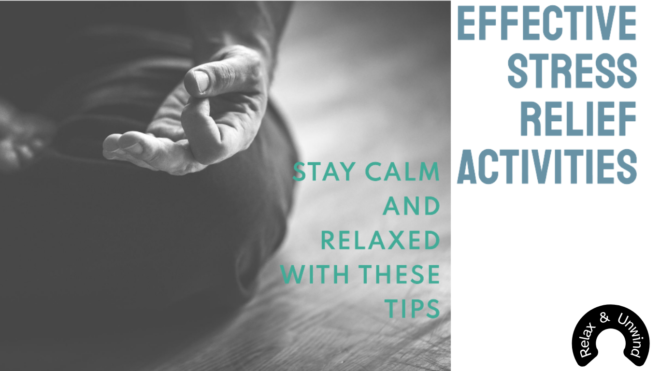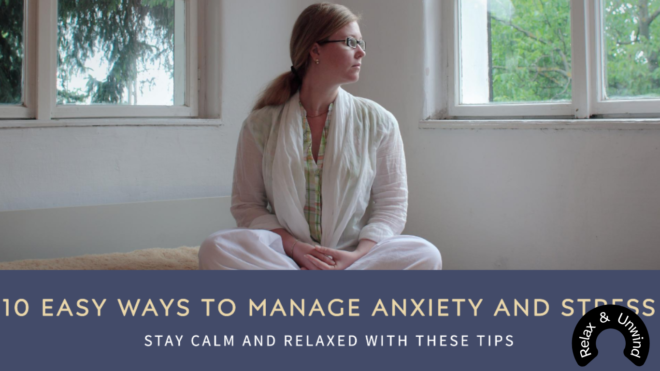Table of Contents
Stress relief refers to the use of various strategies, practices, or activities aimed at reducing or mitigating the negative impact of stress on an individual’s physical, mental, and emotional well-being. The goal of stress relief is to manage and alleviate the pressures, tensions, or challenges that contribute to feelings of stress, promoting a sense of calm, balance, and overall relaxation.
Certainly! Here are some stress relief activities that you can try:
1. Deep Breathing:
Take slow, deep breaths to help calm your nervous system. Inhale deeply through your nose, hold for a few seconds, and exhale slowly through your mouth. Deep breathing is a simple yet effective technique for stress relief. It can help calm the nervous system, reduce muscle tension, and promote a sense of relaxation. Here’s a step-by-step guide on how to practice deep breathing:
- Sit or lie down in a comfortable position.
- Rest your hands on your lap or place one hand on your chest and the other on your abdomen.
- Inhale Slowly Through Your Nose
- Hold your breath for a brief pause at the top of your inhalation, but do not strain.
- Exhale Slowly Through Your Mouth
- Continue this slow, deep breathing pattern.
- As you practice deep breathing, concentrate your attention on your breath.
- You can add a counting element to your deep breathing.
- Incorporate deep breathing into your daily routine.
2. Exercise:
Physical activity can help reduce stress hormones and trigger the release of endorphins, which are natural mood lifters. It could be anything from a brisk walk to a full workout routine. Here are some exercises you can incorporate into your routine for stress relief:
Aerobic Exercise: Engage in activities that increase your heart rate and breathing, such as brisk walking, jogging, cycling, swimming, or dancing.
Yoga: Yoga combines physical postures, breath control, and meditation. It helps promote relaxation, flexibility, and mindfulness. Many people find yoga to be an excellent stress-relieving practice.
Strength Training: Incorporate resistance training into your routine using weights, resistance bands, or bodyweight exercises. Building strength can enhance overall well-being and provide a positive outlet for stress.
Hiking or Nature Walks: Spending time in nature can have a calming effect on the mind. Consider taking a hike or a leisurely walk in a natural setting to connect with the outdoors and reduce stress.
Mindful Walking: Practice mindful walking by paying attention to each step and your surroundings. Focus on the sensation of walking, your breath, and the sights and sounds around you.
Swimming: Swimming is a low-impact exercise that engages multiple muscle groups. The rhythmic nature of swimming and the buoyancy of the water can be soothing and stress-reducing.
3. Meditation:
Practice mindfulness meditation to focus your mind on the present moment. This can help reduce anxiety and promote a sense of calm. Meditation is a mindfulness practice that can effectively relieve stress by promoting a state of relaxation, reducing the activation of the body’s stress response, and enhancing overall well-being. Here are ways in which meditation helps alleviate stress:
- Meditation encourages a focused and calm state of mind.
- Meditation triggers the body’s relaxation response, which is the opposite of the “fight or flight” stress response. This leads to a decrease in heart rate, blood pressure, and the production of stress hormones.
- Through mindfulness and deep breathing, meditation helps release physical tension held in the body, especially in areas prone to stress, such as the neck, shoulders, and jaw.
- Mindfulness, a key component of meditation, involves being fully present and aware of the current moment without judgment. This practice can reduce the tendency to ruminate on past events or worry about the future, contributing to a sense of calm.
- Stress often disrupts sleep patterns. Meditation has been shown to enhance sleep quality by calming the mind and promoting relaxation, contributing to improved overall well-being.
- Meditation has positive effects on cognitive function, Lowering Cortisol Levels and Increasing Self-Awareness.
4. Progressive Muscle Relaxation (PMR):
Tense and then relax each muscle group in your body, starting from your toes and working your way up. This can help release physical tension. To practice Progressive Muscle Relaxation:
- Find a quiet and comfortable place to sit or lie down.
- Start by tensing and then relaxing individual muscle groups, progressing through the body.
- Focus on the sensations of tension and relaxation, and take slow, deep breaths throughout the process.
- Gradually work your way through all major muscle groups, from head to toe.
- Practice regularly for optimal benefits, adjusting the duration based on your comfort level.
5. Reading:
Escape into a good book to take your mind off stressors. Reading can be a great way to relax and unwind. Reading can be an effective way to relieve stress and promote relaxation. Here are several ways in which reading can contribute to stress relief:
Escape from Reality: Engaging in a good book allows readers to temporarily escape from the stresses of daily life. The immersive nature of a compelling story or well-written content can transport the mind to different worlds, providing a mental break.
Cognitive Distraction: Reading requires focused attention, which can divert the mind from stressful thoughts and worries. The act of concentrating on the words on the page can create a cognitive distraction, allowing for mental relaxation.
6. Art and Creativity:
Engage in activities like drawing, coloring, or crafting. These creative outlets can be therapeutic and provide a break from stress. Art and creativity can reduce stress through various mechanisms that engage both the mind and the body. Here are ways in which these activities contribute to stress reduction:
Mindfulness and Present Moment Awareness: Whether it’s painting, drawing, or any creative endeavor, the process demands attention to details, colors, and textures and promoting mindfulness
Expressive Outlet for Emotions: Art provides a means of expressing emotions that may be difficult to articulate verbally.
Creative Flow and Distraction: Getting into a state of creative flow, where one is fully absorbed in the creative process, serves as a distraction from external stressors.
Enhanced Self-Esteem and Accomplishment: Completing a creative project, whether it’s a painting, poem, or sculpture, can boost self-esteem.
Cognitive Shift and Problem-Solving: Engaging in creative problem-solving during artistic activities can lead to a cognitive shift.
Emotional Regulation and Stress Coping: Art and creativity provide a healthy means of emotional regulation.
Mind-Body Integration: Engaging in art often involves a connection between the mind and the body.
7. Nature Walk:
Spend time outdoors, whether it’s a walk in the park, a hike, or simply sitting in a natural setting. Nature has a calming effect on the mind. Taking a nature walk is a simple yet effective way to relieve stress and promote overall well-being. Here are several ways in which a nature walk can contribute to stress relief:
- Fresh Air and Oxygen Intake
- Connection with Nature
- Physical Activity
- Stress Reduction Hormones
- Mindfulness and Presence
- Visual Pleasure
- Vitamin D Exposure
- Escape from Technology
8. Socializing:
Connect with friends and family. Sharing your feelings and experiences with others can provide emotional support. Socializing is a valuable and natural way to relieve stress, providing various psychological and emotional benefits. Here are several ways in which socializing can contribute to stress relief:
Social Support: Interacting with friends, family, or a support network provides a sense of belonging and social support.
Emotional Expression: Sharing thoughts and emotions with others allows for emotional expression. Talking about your experiences can be cathartic, helping you process stressors and gain perspective on challenges.
Distraction from Stressors: Engaging in social activities provides a temporary distraction from stressors.
Connection and Belonging: Human beings are social creatures, and fostering connections with others fulfills a fundamental need for belonging.
Problem-Solving and Perspective: Discussing challenges with friends or family can provide fresh perspectives and insights. To maximize the stress-relieving benefits of socializing:
- Choose social activities that bring you joy and fulfillment.
- Prioritize quality interactions over quantity, focusing on meaningful connections.
- Be open and honest about your feelings, allowing for genuine and supportive conversations.
9. Journaling:
Write down your thoughts and feelings. Keeping a journal can be a therapeutic way to process emotions and gain perspective.
10.Limiting Screen Time:
Take breaks from electronic devices. Constant exposure to screens can contribute to stress, so give your eyes and mind a rest.
Remember, different activities work for different people, so it’s important to find what resonates best with you. Experiment with these suggestions and tailor them to fit your preferences and lifestyle.
FAQs
Can stress relief activities really make a difference?
Yes, engaging in stress relief activities can significantly reduce stress levels and improve overall well-being. These activities help activate the body’s relaxation response, leading to a sense of calm and tranquility.
How often should I practice stress relief activities?
It’s essential to make stress relief activities a regular part of your routine. Aim to incorporate these activities into your daily or weekly schedule to reap their benefits consistently.
Can stress relief activities replace professional help?
While stress relief activities can be beneficial, they may not be sufficient for everyone, especially those dealing with severe or chronic stress. If you’re struggling to manage stress on your own, don’t hesitate to seek professional help from a therapist or counselor.
Are there any external resources for stress relief activities?
Yes, there are many resources available to help you explore and practice stress relief activities. Consider joining a yoga class, mindfulness meditation group, or seeking guidance from books, online videos, or mobile apps.
How can I make time for stress relief activities in my busy schedule?
Prioritize self-care by scheduling time for stress relief activities in your daily or weekly routine. Even a few minutes of practice each day can make a significant difference in managing stress levels and promoting overall well-being.
Are there any specific stress relief activities recommended for beginners?
For beginners, simple activities such as deep breathing exercises, mindfulness meditation, and nature walks can be excellent starting points. Start with short sessions and gradually increase the duration and intensity as you become more comfortable.


